This article is part of our written series that introduces and explores small businesses that align with the FEC mission of encouraging local food makers and producers. This series hopes to serve as a resource and as inspiration for other industry folk in sharing the stories of local food entrepreneurs in the Brandenburg area.
by Madeline McLean
There are few food items (and with correspondingly fleeting growing seasons) that so strongly encapsulate a cultural identity as asparagus (Spargel) for Germans. Now in my second year in Germany, I am awed yet again by the sheer power and ubiquity of Spargelzeit as it bursts onto the scene every spring. As a foreigner, it still eludes me to some degree, as to how deep for Germans the connection to this vegetable really runs. It appears a cultural phenomenon that lies at the confluence of heritage and tradition, nostalgia and culture: all separate currents that seem to converge around spring Spargel. In fact, when one considers Germany’s terroir, there isn’t much else that forms a comparably deep-seated association than asparagus: not unlike olives in Italy or grapes in France. Germans truly take their Spargel and Spargelzeit seriously with asparagus-related social gatherings and events such as Spargel Queens, Spargel festivals and Spargel trail tours. Just as with wine grapes, I’m told the soil will offer nuances of a region’s terroir, altering the flavor profiles of asparagus from one region to the next.
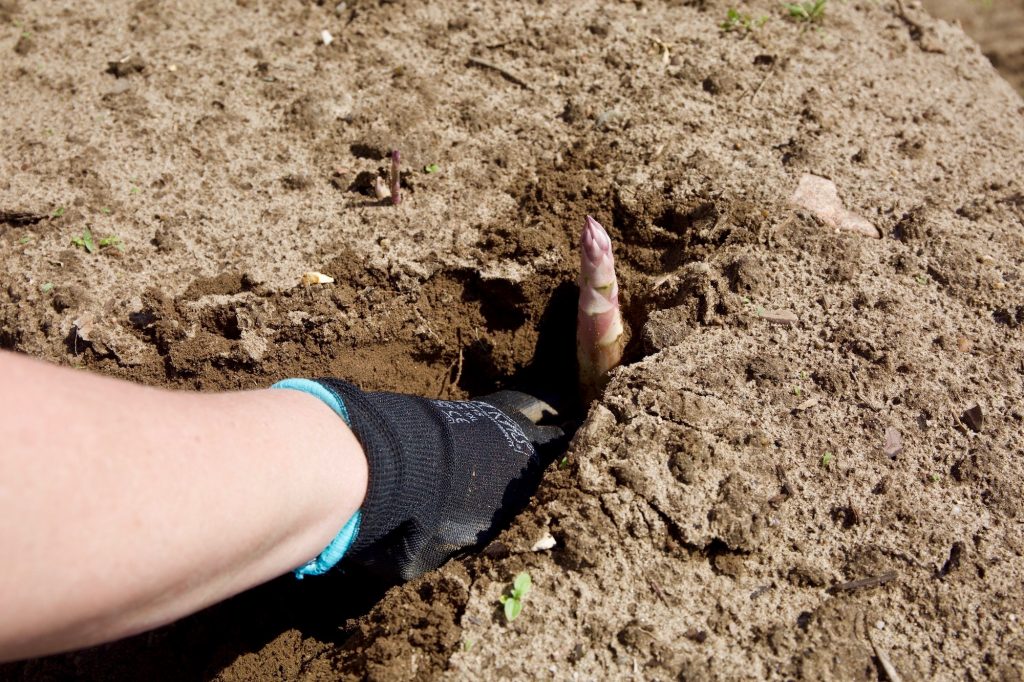
In Germany Spargel stands for so much more than just sustenance, it bears the historic weight of a cultural identity, history, economy, currency and seasonal salvation. Being tied inextricably to German identity, Spargel undoubtedly has an interesting modern history from 1900 on, especially in the former East German (the GDR) town Beelitz, which is one of the most well known regions for asparagus production. Beelitz’s history as a town in former East Berlin, is a good example of how asparagus the vegetable can be representative of so much more.
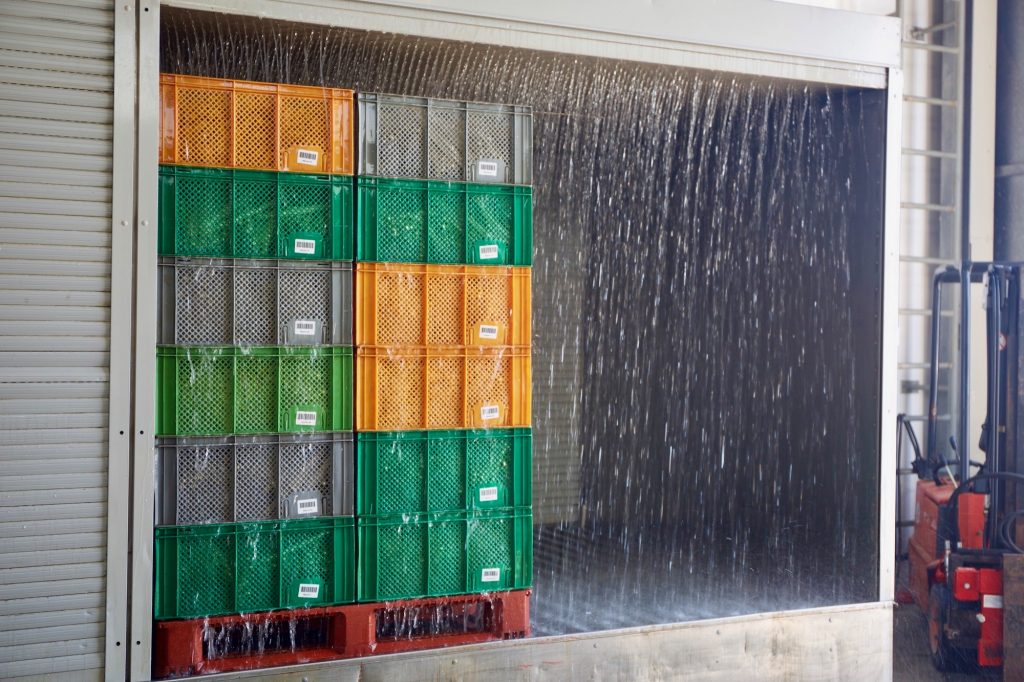
The first record of asparagus cultivation was in 1861, though its status as a feature of people’s’ diets was certainly not new or novel. In 1908 Beelitz initiated the first cooperative association dedicated to stabilizing asparagus prices in the region, which had become a prized one for Spargel production. But the arrival of the iron curtain rang the death knell of industrial Spargel production and by 1960, large-scale asparagus farming ended altogether. But the GDR political stance on industrial asparagus cultivation was to say nothing of the passion among its citizens for the vegetable, as in the case of Beelitzers, they continued to grow it in their private gardens. In fact, asparagus was so prized that it became a form of black-market currency amongst the local residents of Beelitz, trading bunches of the white stalks for other commodity items like tractor parts. It appears that people could make earn money trading asparagus on the sly than in toiling away at their respective day jobs*. Shortly after the fall of the Berlin Wall, Beelitzers were quick to reinvigorate asparagus farming on a large scale, applying to the government for dedicated Spargel-farming land-use permits, in order to aid in the foundation of the Spargelverein, which today, governs everything culturally significant as it relates to asparagus. Thanks in no small part to the Spargelverein, Beelitzer Spargel is a protected heritage brand.
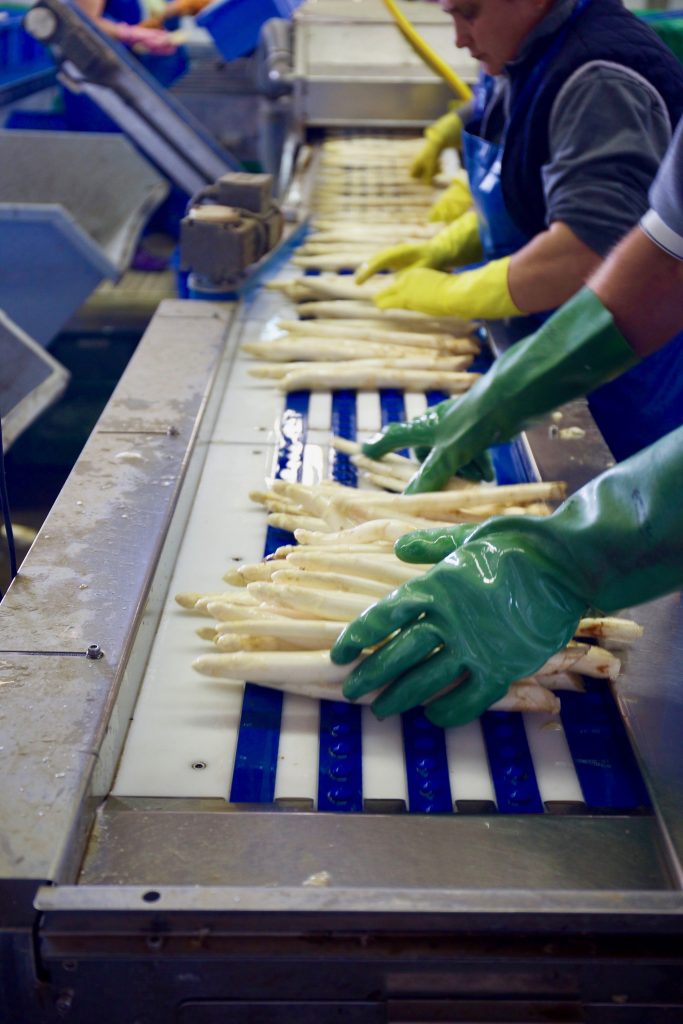
Spargelhof Syring in Beelitz is an example – if not the manifestation – of this very history and cultural status. Established in 1991, the farm has since been passed down to son Thomas in an effort to reinvigorate not only the farming industry, but also the cultural heritage of Beelitzer Spargel in the commercial sector. From his roots, this veneration and preservation of Spargel runs in Thomas’ blood; his business guarantees for the provision and maintenance of the highest quality standards for his customers. Today, Syring dedicates 40 hectares of land to white asparagus and hungry consumers from all over the region flock to his farm stands and outlying farm to fill their bags with what has been called Syring’s “white gold.”
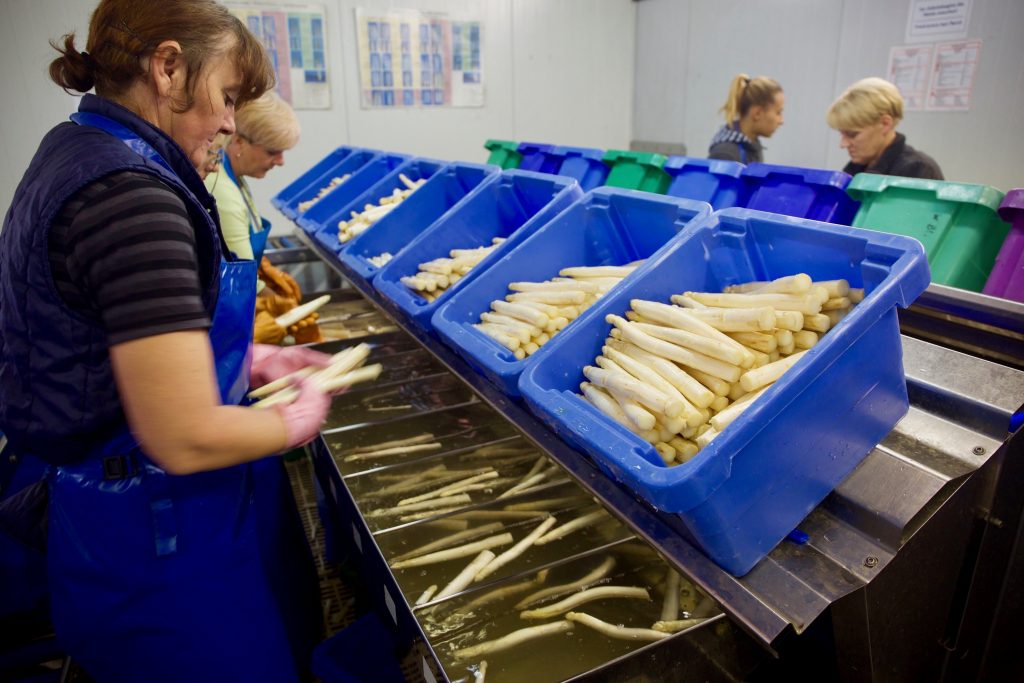
On my visit to Landwirt Syring, Thomas and I sit in the sun and watch customers pull up to the farm shop. As we discuss Syring’s business tenets, I can’t help but wonder about the diversity in product from one Spargelhof to the other: what drives one consumer’s to buy the asparagus from Syring instead of that from another farm down the road; can there be such a marked difference in flavor from one Spargelhof to another? Thomas reflexively asks the same question – an important question for him that informs his business specific structure. It is clear that everything that Thomas does is thoughtful and deliberate. Thomas’s top two priorities are: contact with his customer and to control his product in the public sphere, both of which allow him to consistently deliver the highest quality product to his consumers. To that end, Thomas emphasizes his work directly with chefs, restaurants and public consumers over the supply to large-scale grocery chains, even when an increased focus on the latter would almost guarantee his business higher profits.
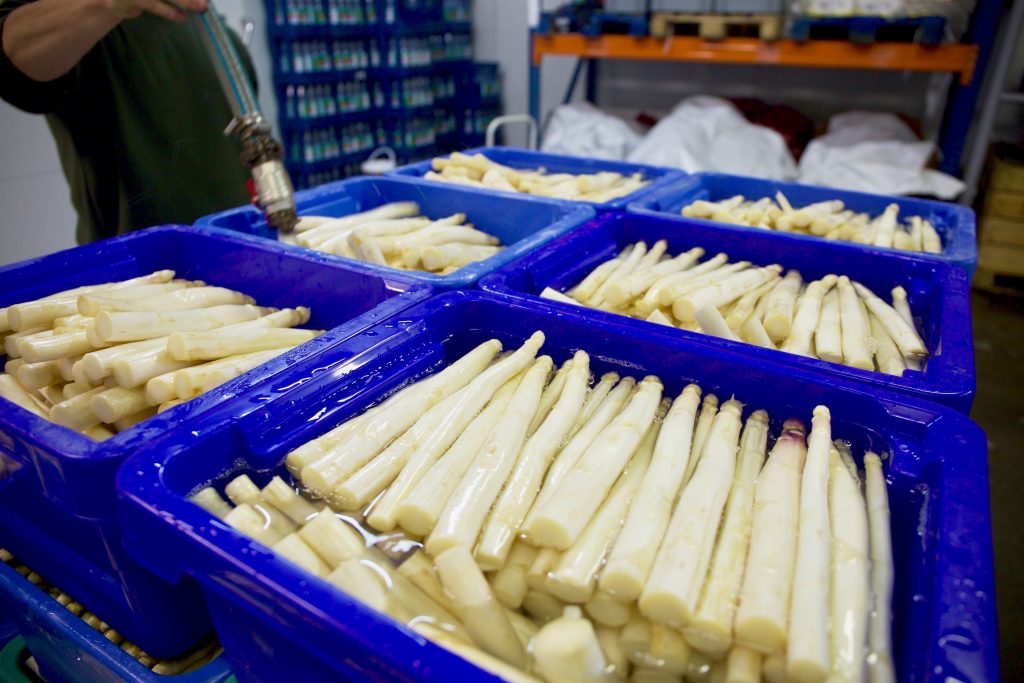
This question of durable competitive advantage can be applied to all industries – particularly food and hospitality – when so many similar concepts exist in such close physical proximity. And it’s on full display here at Thomas’ Spargelhof as well. While walking through the production house and farm shop it occurs to me that at least as far as foodstuffs and other edible goods are concerned, the way in which a business treats its customers is probably the primary magic ingredient in cementing customer loyalty. In fact I find that for me personally (and without stepping onto the third-rail politics of bio-this or öko-that), my strongest and most emphatic vote as far as whom I want to support when it comes to sourcing food items, always comes down to the business practice of that individual’s enterprise. It is how one runs a business that really cements a loyal consumer following. And my walk through Syring is a perfect reminder of this.
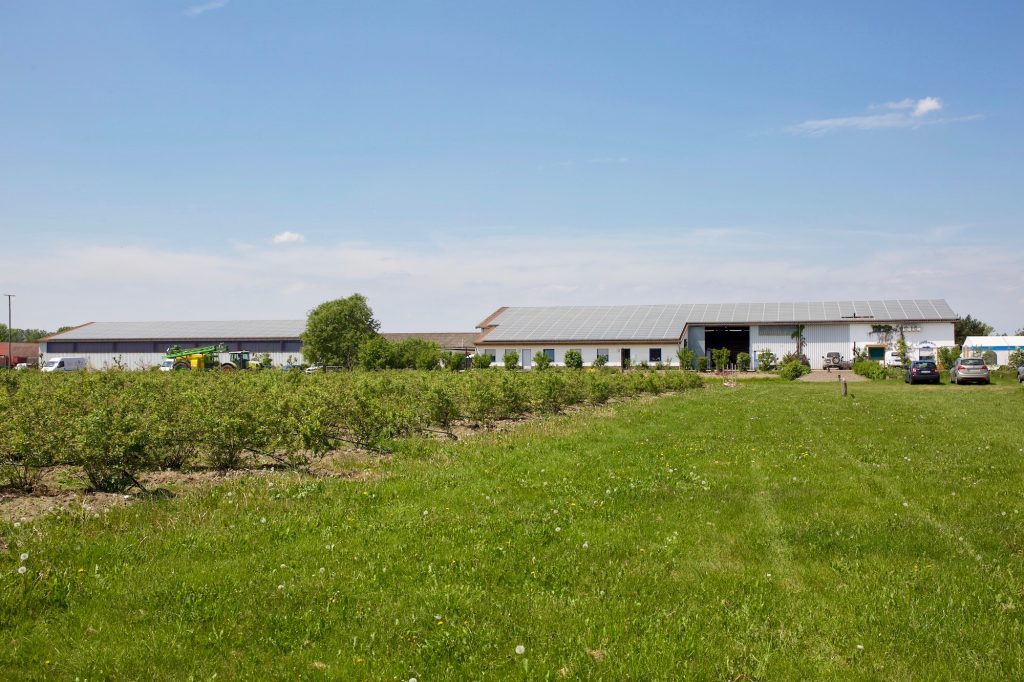
Landwirt Syring’s success in this particular community and Thomas’ efforts to strive for the highest quality possible underscores the ways in which we all might be able to think more about making deliberate efforts in choosing quality over price and convenience. And in so doing Landwirt Syring plays a crucial role in preserving the rich heritage of asparagus in Beelitz to see it through another generation.
________________________________________________________________________________
Spargelzeit officially ends June 24th. If you miss Spargelzeit, Syring also sells beautiful blueberries come July and is known also for their biological pumpkin seed oil. To source directly from Landwirt Syring, contact them at 03 32 04 – 6380-0, info@beelitzerspargel.de. Gastro prices are an average estimate from late May, but may change due to weather and other natural factors: 6,90€/kilo (un-peeled), 7,40€/kilo (peeled). Thickness of asparagus ranges, one can request specific sizes as needed. Landwirt Syring has 27 farm stands across the region and they regularly make trips to Berlin where they have a market stall on Fridays and Saturdays at Markthalle Neun.
*Der Tagesspiegel, “Wie der Spargel zur Währung wurde” 14.03.2011



